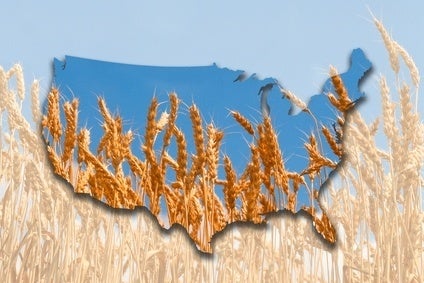The GMO debate has again taken centre stage in the US, with Vermont becoming the first state to require the labelling of genetically modified organisms in food products.
The law, which will come into force in two years time, will require products sold in Vermont to be labelled if they contain the GMO ingredients.

Access deeper industry intelligence
Experience unmatched clarity with a single platform that combines unique data, AI, and human expertise.
Unlike similar laws passed by the states of Maine and Connecticut, Vermont is prepared to go it alone and yesterday’s legislation is free from “trigger clauses” that require the support of at least four other states.
“We are pro-information,” Governor Peter Shumlin told a crowd of media and supporters gathered on the Statehouse lawn as he signed HB 112 into law yesterday (8 May). “Vermont gets it right with this bill.”
Not all would agree.
The US food industry, represented by bodies including the Grocery Manufacturers Association (GMA), the Snack Food Association, the American Frozen Food Institute and the American Bakers Association, staunchly opposes state-level regulation. Indeed, the sector spent more than US$70m defeating proposed bills in Washington State and California alone last year.

US Tariffs are shifting - will you react or anticipate?
Don’t let policy changes catch you off guard. Stay proactive with real-time data and expert analysis.
By GlobalDataIndustry bodies maintain that GMO-foods are safe and insist that the use of GMOs in crop cultivation carry environmental and economic benefits.
“GM crops are safe and have important benefits for people and our planet. They use less water and fewer pesticides, reduce crop prices by 15-30 percent and can help us feed a growing global population of seven billion people. The FDA, World Health Organization, American Medical Association and US National Academy of Science have all found that foods and beverages that contain GM ingredients are safe and materially no different than conventionally produced products,” the GMA again insisted yesterday.
In a statement issued in response to Vermont’s legislation, the GMA described the bill as “critically flawed” and “not in the best interests of consumers”.
“It sets the nation on a costly and misguided path toward a 50-state patchwork of GMO labelling policies that will do nothing to advance the safety of consumers,” the GMA argued as it urged policy makers to support federal level legislation.
On an operational level, the challenge that a patchwork of differing regulatory requirements would present is clear. Compliance is a necessity for all food manufacturers – but how could you operate a centralised supply chain when packaging needed for the same product would differ on a state-by-state basis? The additional expense would be a thorn in the side of the sector that would likely be passed on to consumers.
The food sector – and the deep pockets of its lobbyists – have therefore thrown their weight behind Safe and Accurate Food Labeling Act, HR 4432, which is being debated this year.
Proponents of the proposed federal bill emphasise the importance of having a uniform national approach. But it is also worth noting that, as it stands, the proposals lack some of the teeth of comparable bills being mulled by state regulators.
The bill would establish federal standards for companies that want to voluntarily label their product for the absence-of or presence-of GMO food ingredients, allowing food manufacturers to label their food products as “GMO-free”. But food manufacturers would not be allowed to imply that a food is more or less safe owing to the absence of GM ingredients. Significantly, it would only mandate GMO labelling if the FDA determined there is a health or safety risk.
A growing amount of pressure for GMO labelling comes from US consumers, who have grown increasingly concerned over the health and safety implications of GMO ingredients. Consumers, they argue, have the right to make an informed choice over whether to eat products containing GMOs.
Indeed, this demand has prompted a number of manufacturers to jump on the GMO-free bandwagon. Earlier this year, General Mills and Post Foods moved to label their Cheerios and Grape-Nuts products respectively as GMO-free.
However, speaking to just-food when the switch was made, a representative of General Mills revealed that the company was able to do this with Cheerios for one simple reason – it is oat-based and there are no GMO oats.
However, it would be “difficult if not impossible” to move its other mainstream cereals to a GM-free platform due to the “widespread use of GMOs in the US,” the spokesperson conceded.
Indeed, an estimated 90% of commodity crops destined for the US food supply, including soy, sugar beet and feed corn, are genetically modified. Essentially, if you are eating non-organic foods in the US, chances are it contains GMOs.
So, do US consumers even have a choice over whether or not they eat GMOs?
To an extent, the answer is yes. They can buy organic alternatives, which are free from GMOs but more expensive. However, the centre of the grocery store is dominated by big selling brands that, for the most part, contain GMO ingredients. Labelling regulations would simply spell this fact out to consumers.


